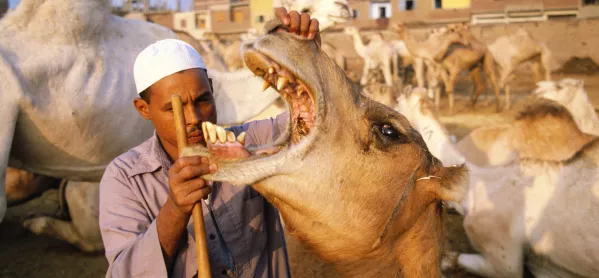
Ofsted must shift its thinking on trusts’ role in school inspections

As one door closes, another opens, so the saying goes.
The Department for Education’s decision not to proceed at the current time with multi-academy trust (MAT) inspection presents an opportunity for Ofsted to address the question of trusts in a different way: how can it bring them more meaningfully into the existing paradigm of school inspection?
You see, although there are compelling reasons for trust inspection, there are risks, too.
One is that overlaying a model of trust inspection on top of school inspection might inadvertently reinforce a false boundary between individual schools and their trusts.
The inspectorate itself seems to uphold this misconception. For example, paragraph 319 of the Ofsted handbook says: “A MAT CEO or their delegate may request to meet inspectors as a part of the inspection. They may also request to attend key inspection team meetings.”
Note the word “request”. While it’s important to recognise that Ofsted has come a long way in bringing trustees and executive leaders into inspections, the use of “request” here is problematic.
There are echoes of this tentative engagement in paragraph 318, too: “If leadership functions are performed by MAT leaders, then inspectors will consider whether they need to meet MAT leaders to gather evidence.”
The trust and the school
The part that troubles me is the implication that it is for inspectors to work out whether they should agree to such a “request” or “consider” whether they should.
It is legacy thinking that sees the trust as something external to the school. In fact, the trust and the school are legally inseparable. And in terms of accountability, what happens in that school is ultimately the responsibility of the accounting officer (usually the chief executive) and the trust board.
The notion of them requesting to be involved in the inspection, as if such a thing can be denied, is both symbolically and practically wrong-headed.
To be clear, I’m not making the case that inspectors should always automatically meet with chief executives, trustees and executive teams.
For example, in very large trusts, there may be people who are closer to the detail and are thus more relevant to the inspection.
Rather, I’m saying that, as the legal entity responsible for running the school, it really should be for the trust to decide who speaks to inspectors. Perhaps this could be explored through a modified approach to notification and planning prior to an Ofsted visit.
Naturally, this would continue to include the headteacher as a matter of course but, as the responsible body, it should be for the trust to decide who else should speak to inspectors.
Ofsted’s recent publication on trust involvement in school inspections said that “conversations with trusts are an integral part of a school’s inspection”.
This report offers some reassurance but, unfortunately, I still hear examples of trust leaders struggling to have the input into the inspection that they would like or, in some cases, it feeling that there is an almost grudging acceptance of their presence.
As Ofsted’s report acknowledges, this can come down to the individual inspector.
Why is this the case?
Some of it is historical. The emergence of the trust sector has been grafted post hoc onto an established way of inspecting schools, initially with the trust being seen as a parallel body to the local authority, which tended to have a relatively arm’s-length role during the inspection of maintained schools.
Accordingly, handbooks used to talk about local authority representatives and trust representatives as if they were analogous which, of course, they are not.
A second reason, I suspect, is a misgiving on the part of inspectors that the trust might seek to affect the inspection in some way: perhaps they’ll want to add evidence or challenge emerging findings?
But to suggest that these are reasons to keep the trust at arm’s length is to lean into the misunderstanding I referred to above; it is to miss the point that the trust is the school and the school is the trust.
Such an understanding is not yet sufficiently embedded in inspection practice, as can be seen in this statement from Ofsted’s research report: “Inspectors explained that they can identify where strengths or weaknesses are attributable to the trust, but the need to focus the report on the individual school can make it difficult for inspectors to include these.”
As this reveals, drawing a false boundary between school and trust is a missed opportunity for inspectors. If trustees and executive teams are ultimately responsible for what happens in the school, then inspectors should welcome them as a potential source of vital information.
It’s a missed opportunity for headteachers, too, many of whom might value the support and comradeship of their colleagues throughout the inspection.
Make the trust more prominent
And on that note, isn’t it curious that it’s still the headteacher’s name that is prominent on inspection reports?
The name of the trust chair is given but the name of the trust itself is mentioned in the small print at the end. Perhaps it’s time to help parents understand the trust’s responsibility for the school by making this more conspicuous.
In fairness to Ofsted, it has already moved in the direction of greater trust involvement over time. But there is room, where it makes sense for the trust, to go further still within the existing paradigm of school inspection.
The door to trust inspection is closed, for now at least.
But the door is open for Ofsted to involve trusts more, where trusts wish to, in the school inspection process.
Steve Rollett is deputy chief executive of the Confederation of School Trusts
topics in this article



